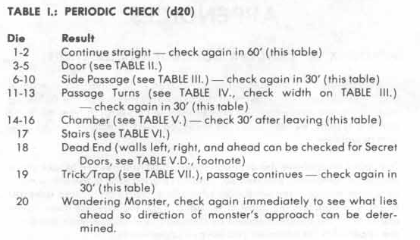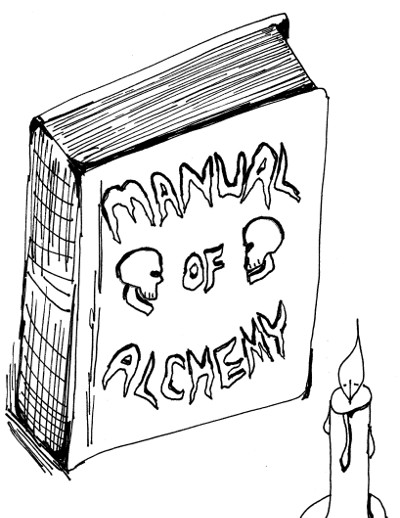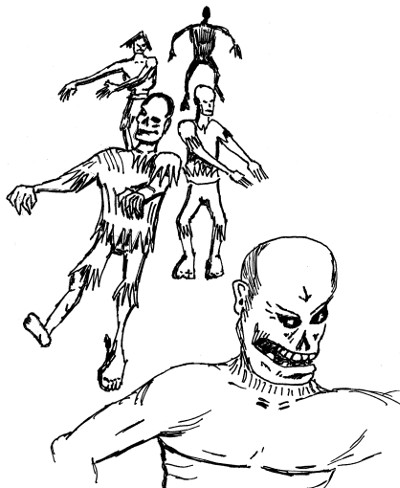After reading It’s a Trap! To Roll or Not To Roll? and The Perception Check of OD&D, both popping up in my feed yesterday, I considered my own use of perception checks. I tend to give anything from 0e attention with the assumption there was purpose and proven utility, I don’t tend to shoot for doing things the old school way as an end to themselves. The various, overlapping rules about detection are too numerous and complex for my aims.
I’m inclined to respond to actions about specific perceptive activity with an automatic success, especially if clues were followed. I always want that moment when the player offers a theory and moves directly to a discovery. The reward for this clever play is immediate satisfaction.
For hidden items that might be noticed passively, the difficulty ought to be figured during preparation. It’s easy to rate the challenge with a target at the same time it’s being written into the room notes. It’s also easy to note the intent that a passive check be made.
Non-obvious features of an area can be built into a table similar to a set of rumors that appears at the beginning of modules. These can be delivered in order or randomly. They can be granted by passive checks, or 10-minute searches. Contrary to rumors, hidden information about a room organized this way should be true, but it can be trivial and therefore valuable only in mood-setting.
I like the idea of combining both INT and WIS bonuses to represent how intelligence and intuition might work together or against each other in stumbling into noticing something. That leads me towards setting a DC rather than using a d6 mechanic. To factor in certain racial bonuses, such as a dwarf noticing a sloping passage, a 1 in 6 bonus can easily transfer to +3 on a d20.
I can appreciate the idea about letting players roll as a way to deflect disappointment towards the roll of the dice. It’s also necessary to roll behind the screen even when there’s no chance of success so as to leave some doubt, and therefore the option to spend another 10 minutes searching. The proposition of a wandering monster is enough to make the decision interesting.



